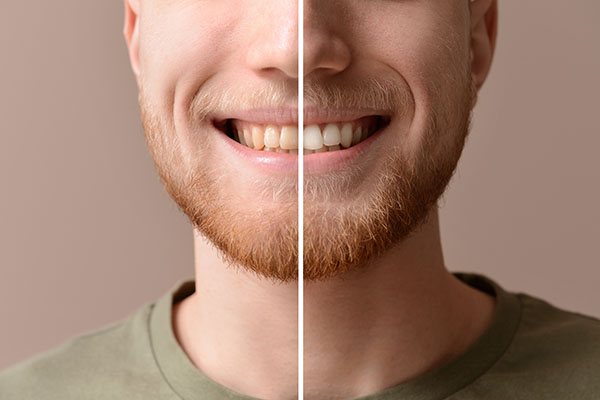Teeth cleaning is one of the most effective ways to keep your gums in top shape and prevent gum disease. Regular cleanings not only help maintain a healthy smile but also ensure that your gums remain free from plaque and tartar build up. Plaque, which is a sticky layer of bacteria, can lead to gum infections if left unchecked. Proper Teeth Cleaning, both at home and with professional care, is essential for keeping your gums healthy and avoiding serious dental issues like gingivitis or periodontitis.
The Connection Between Teeth Cleaning and Gum Health:
Teeth cleaning plays a crucial role in gum health because it directly addresses plaque and tartar, which are the main causes of gum disease. Plaque forms on your teeth after eating and drinking, and if not removed by brushing and flossing, it can harden into tartar, which can only be removed by a professional dentist. Over time, plaque and tartar cause the gums to become inflamed, leading to gum disease.
- Plaque and Tartar: These build up on your teeth, irritating the gums and causing inflammation.
- Gum Disease Prevention: Removing plaque and tartar helps prevent gingivitis, the early stage of gum disease.
- Healthy Gums: Regular cleanings are essential for ensuring your gums stay free of harmful bacteria.
Why Professional Teeth Cleaning Matters?
While brushing and flossing at home are important, they may not be enough to keep your gums in optimal health. Professional teeth cleaning performed by a dental hygienist or dentist is vital for removing tartar and plaque from places that a toothbrush can’t reach. This thorough cleaning reduces the risk of gum disease and allows your dentist to spot early signs of gum issues before they become severe.
- Thorough Cleaning: Professional cleanings remove tartar that regular brushing can’t.
- Prevention of Gum Infections: A dental hygienist uses specialized tools to clean beneath the gums and around each tooth.
- Early Detection: Regular professional cleanings help detect any early signs of gum disease.
Early Signs of Gum Disease:
The first signs of gum disease, such as gingivitis, are often subtle and easy to overlook. However, they are essential warning signs that your gums need immediate attention. Symptoms such as bleeding when brushing, swollen gums, and persistent bad breath indicate that your gums are inflamed and require professional care. Regular teeth cleaning prevents these symptoms from progressing into more serious gum problems.
- Bleeding Gums: A sign of early gum disease that occurs when plaque and tartar irritate the gums.
- Swollen or Red Gums: Inflammation that can occur when gums are not properly cleaned.
- Persistent Bad Breath: Caused by bacteria in the mouth, which professional cleanings can eliminate.
How Often Should You Get Teeth Cleanings?
The American Dental Association recommends getting professional teeth cleanings at least twice a year to maintain optimal gum health. However, some individuals may need more frequent cleanings, especially if they have a history of gum disease, smoke, or have conditions like diabetes. Your dentist will be able to assess your specific oral health needs and recommend a personalized cleaning schedule.
- Twice a Year: For most people, professional cleanings twice a year are sufficient.
- Increased Frequency: Those at higher risk of gum disease may need cleanings more often.
- Tailored Recommendations: Your dentist can customize your cleaning schedule based on your oral health.
The Long-Term Benefits of Regular Teeth Cleaning
Regular teeth cleaning offers a range of long-term benefits, including healthier gums, reduced risk of cavities, and a brighter smile. By preventing gum disease, you also reduce the risk of more severe health problems, such as tooth loss or the need for costly dental treatments. Additionally, keeping your gums and teeth healthy can improve your overall health, as there is a known link between gum disease and various systemic conditions, including heart disease and diabetes.
- Healthy Gums: Regular cleanings help maintain strong, healthy gums that are resistant to infection.
- Prevention of Tooth Loss: Regular teeth cleanings help prevent gum disease, which can lead to tooth loss.
- Overall Health: Maintaining healthy gums reduces the risk of other health complications, such as heart disease.
Maintaining Gum Health Between Cleanings:
In addition to regular professional Teeth Cleaning, it’s essential to maintain good oral hygiene at home to keep your gums healthy. Brushing your teeth at least twice a day, flossing daily, and using an antibacterial mouthwash can help prevent plaque buildup and keep your gums in top shape. A healthy diet and avoiding smoking also play significant roles in supporting gum health.
- Daily Brushing and Flossing: Brushing and flossing are crucial for removing plaque that accumulates throughout the day.
- Healthy Diet: Eating foods rich in vitamins and minerals helps support gum health.
- Avoid Smoking: Smoking weakens your immune system and increases the risk of gum disease.
In conclusion, teeth cleaning is essential for keeping your gums in top shape. By regularly visiting your dentist and following good oral hygiene practices, you can prevent gum disease and enjoy long-term dental health. Don’t neglect your gums—make teeth cleaning a priority to maintain a healthy mouth and a beautiful smile.

